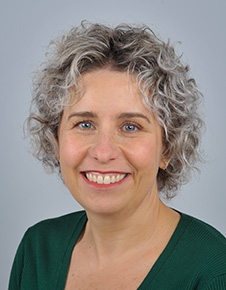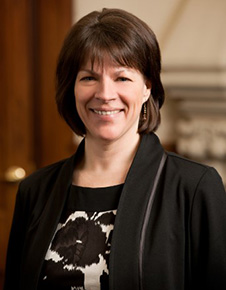
Professor Diana Sarfati.
The new interim National Director of Cancer Control, University of Otago academic Professor Diana Sarfati, believes lives will be saved as a result of the new National Cancer Action Plan.
Professor Sarfati's appointment to this new role was announced today by the Prime Minister, Jacinda Ardern, as part of the just-released New Zealand Cancer Action Plan.
Professor Sarfati is currently Head of the Department of Public Health at the University of Otago, Wellington, and Director of the Cancer and Chronic Conditions (C3) research group.
"This plan represents a turning point in our approach to cancer. The plan focuses on making sure that all New Zealanders have the best possible care no matter who they are or where they live, as well as reducing the risk of preventable cancers," Professor Sarfati says.
"I am honoured to take on this role. I have spent my life working alongside patients, clinicians, Māori health leaders and communities to find ways to improve cancer outcomes in New Zealand. This plan will change the cancer landscape and lives will be saved as a result.
"The first step will be to listen to the voice of those most affected by cancer and the people who care for them."
University of Otago Vice-Chancellor Professor Harlene Hayne is delighted that Professor Sarfati has been selected for the role.
"Professor Sarfati is a world-renowned cancer academic and an outstanding leader. She has made her mark on the University of Otago in teaching, research and service, and her work has changed the lives of many in New Zealand and abroad through her contribution to cancer research," Professor Hayne says.

Vice-Chancellor Professor Harlene Hayne.
"Her appointment to this role is recognition of her ability and track record, as well as potential to further serve New Zealand. We are thrilled with her appointment and are certain she will be a success."
Inequalities in cancer has been a focus of Professor Sarfati's research career with her leading a large body of research relating to ethnic disparities in cancer outcomes, particularly those affecting indigenous people.
"Professor Sarfati's work to date has resulted in the identification of key patient and health system factors that influence cancer survival. It has been used extensively by health policy makers, clinicians and other researchers to develop policies and practices that aim to reduce inequities in cancer outcomes," Professor Hayne says.
Medical Director of the Cancer Society of New Zealand Dr Chris Jackson says Professor Sarfati's work has provided the impetus for many major policy changes in New Zealand.
"Professor Sarfati is a world-class academic. Her work on inequalities is sited around the world, and formed the basis for much of the current focus on reducing inequalities in cancer treatment."
Concerned New Zealand has been lagging behind other countries in terms of cancer outcomes, Professor Sarfati co-led the organisation of the landmark Cancer Care at a Crossroads earlier this year, which provided impetus for the new National Cancer Action Plan.
Professor Sarfati is currently a member of the National Cancer Leadership Board (NZ), the Advisory Committee to the International Agency for Research on Cancer's (IARC) Pacific cancer hub, IARC's international expert group on social inequalities in cancer, the Academic Advisory Committee on the International Cancer Benchmarking Project and led a Lancet Oncology series on cancer in small island developing states. She is a former member of the National Screening Advisory Group and the National Bowel Cancer Screening Advisory Committee.
Professor Sarfati will be on secondment from the University from September.






